Sharks - Interview
by Eoghan Lyng
published: 19 / 1 / 2024
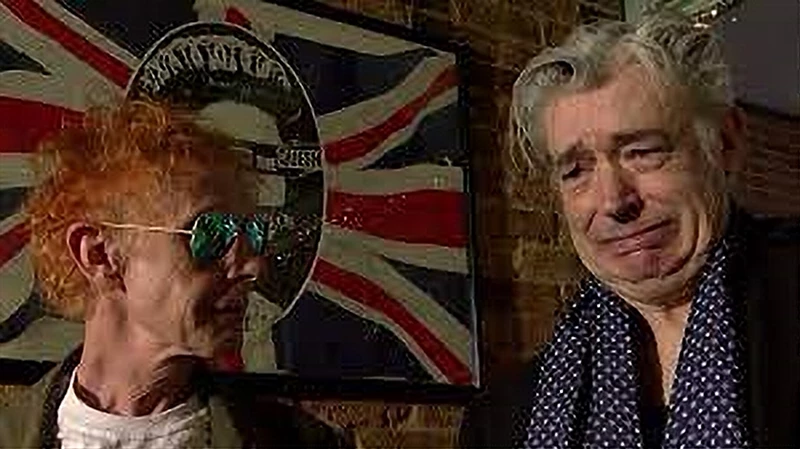
intro
Sharks’ frontman and 70’s punk influence Steve ‘Snips’ Parsons talks to Eoghan Lyng about their new film documentary, ‘Not A Rock Doc (A Shark’s Tale)’.
Steve Parsons has a varied curriculum vitae. He's a singer, a songwriter, a film composer, and retired performer. With ‘Not A Rock Doc (A Shark's Tale’), Parsons can add film director to the list. He's ringing from Germany to discuss his recent film, as well as the 1970s band he rebooted in the 21st century with original guitarist Chris Spedding. "I've always worked very quickly," he explains. "I've always been on throughout my life. But now I have some spare time, and I'm enjoying it." Parsons was Sharks' buoyant frontman (although he was credited as Snips on their debut, ‘First Water’), and worked closely with Spedding both as a singer and a songwriter. The band was founded by Free bassist Andy Fraser, and I'm anxious to hear what it was like to work with such a veteran of blues rock. The answer is surprising: "Andy Fraser was probably the most difficult customer I've ever dealt with, and I've dealt with Ginger Baker!" That is surprising, considering what I've seen from ‘Beware of Mr.Baker’. Parsons chuckles, stating that the director knew how to rattle Baker for the cameras. Any physical altercations was deliberate. "In terms of practicalities, Ginger was quite clear about stuff," Parsons explains."So, I never had a problem with him. In fact, I had a great time with him. Andy [on the other hand] was moody and could get upset about small things. I think he wanted some of the control he had with Free." "He did fantastic work with Free," Parsons continues. "Andy had a very defined compositional style with he harnessed with Free, but then Paul Rodgers started to develop as a songwriter. And then he came into Sharks, and I was developing as a songwriter." Parsons stops: "Awkward person,and very difficult." He has some sympathy for the late bassist. "I don't know if you know this, but Andy came out as gay in the 1980s. He was diagnosed with a form of AIDS, which was when he decided to come out. It wasn't the clever thing to come out in the 1970s, so he had to behave like a hetero." "I have some sympathy for him," Parsons concedes, "but it wasn't easy working with him." More happily, we turn to 'Steal Away' a pastoral ballad that speaks of fealty in a materialistic world. Did Ronnie Lane - another man who decorated his England through a variety of chords, cadences and countermelodies - inspire the track? "No, I don't think it was Ronnie. I did work with Ronnie, though. I worked with him doing backing vocals on some stuff. I might be on 'Poacher'. It's so long ago since I wrote 'Steal Away', but it is in 3/4 [waltz time]. Leadbelly recorded some songs in that time signature, so maybe Ronnie took something from that." Parsons is definitely a fan of Lane's: "I saw Small Faces when I was a teenager, and thought they were the most incredible group. I prefer them to The Faces; way, way more." Was Steve Marriott an influence? "I worked with Steve Marriott. I asked him to sing 'Shakin' All Over' for a film I was working on, and then I produced ‘30 Seconds to Midnight’, which turned out to be his last album." Was Peter Frampton involved with that album? "Peter was lurking in the background during that time. I know he and Steve were looking to work together, and there was a couple of things, but then the fire happened and that was it[Marriott perished in a fire in 1991.] I know Peter was on his way over to England when he heard what happened." I've long admired Spedding's guitar playing, whether it's the bellowing riffs on ‘Jeff Wayne's War of The Worlds’ or the bluesier, more melancholic melodies he performed with Mike Batt. "Yes, Mike has worked with Spedding for years," Parsons explains. "He's probably the best guitarist I've ever worked with, and definitely the most complete. He can play anything. I mean, I have played with some other guitarists who are very good, but I don't know anyone as complete as him." In one of the documentary's more humorous excerpts, Spedding asks a member of the film crew what his motivation is. "Money," comes the reply. "Chris's circumstances are different to mine," Parsons admits. "People forget that Chris is a working musician, and what I like about our documentary is that we show the reality. Yeah, it's nice to be told that we're 'legendary musicians', but to do that, we need to be paid. Chris was a session player, performing with some of the greats, and would tour as a guitarist, but he never made the money that some of these big bands made in the 1970s and 1980s. He's been a working musician for sixty years!" I'm curious to know how they wrote together. "We didn't really write that much together," Parsons replies. "I worked quickly, while Chris has his ideas, but he's slower and they take longer to come together. So, I'd play him something, and he'd say 'No', 'No', and then he'd say to the next :'Almost'. So, he'd come out with a musical section, or he'd help finish a song. I might have written lyrics for a song or two of his on his solo albums, but we didn't do that much. I worked quickly back then, which helped me when I worked in television and film. I could come up with something quickly when I was asked. It's a skill I have [chuckles]." In another cheeky interlude in the documentary, Speddings states he doesn't regret his cocaine addiction, but whatever the substances, his guitar contributions were never less than stellar. One of the highlights of the underwhelming ‘Give My Regards To Broadstreet’ is 'No Values', a no-frills rocker powered by a scintillating hook. "I'm surprised McCartney never worked with him again," Parsons chuckles. "But at least they did that track together." Parsons elaborates: "I do know that McCartney is one of those people who likes to tell you that he can play your part better than you can. He'll show you what to play. But McCartney has the ability to work in lots of different ways with people." Judging by the tone, it sounds like Fraser lacked that ability. "I thought Wings were at their greatest with Denny Laine. But then he stops working with Denny. Oh well!" Parsons features in ‘Not A Rock Doc (A Shark's Tale);’ filling in audiences of the difference in tone the industry has undergone since the 1970s. More than that, he serves as co-director with Anke Trojan. "The thing is, we had a director. We had backers from a company. And we shot a lot of interesting stuff. But then the director's life collapsed." Parsons says the director lost a parent and separated from their spouse, which led to their departure from the project. "And when he left, so did the company." Ultimately, Parsons and Trojan elected to continue filming. They were encouraged by a pot of money that allowed them to complete the shots they wanted. "It was only during the editing stage that we decided we were co-directors. When we work, everything is argued over. We're rude to each other, we accuse each other of stealing ideas, but we don't carry anything on with us. We end the day with a beer." "I think film by its very nature is an argument," Parsons continues. "If everything is too smooth and too happy, the film doesn't turn out to be good, does it? It's the difficulties and contradictions that makes a film work." Parsons has been in the industry long enough to recognise a change in tone in cinema. "I saw the change to the modern director. In the old days, the director had a talented composer, a talented editor, and he just let them get on with it. But now the director has a knowledge of editing, and a knowledge of software. Directors are now expected to micro-manage, and the studios micro-manage. My favourite filmmakers were the likes of John Carpenter and Werner Herzog,[they]made their films, and you either liked them or not. I think it would be hard for them, and maybe even Kubrick, to manage today." By contrast, ‘Not A Rock Doc (A Shark’s Tale)’ was bolstered by pure autonomy; nothing made it into the film if the directors didn't want it to. "The Sex Pistols have been exploited, and we were careful not to use Paul Cook for those purposes. But he was in the band, he's a fan of the band, and I think he's in the film just enough." Cook wasn't the only punk rocker who enjoyed the band's songcraft, it seems. "Mick Jones said in 1974 his two favourite bands were Shark and Mott the Hoople. So, if we didn't inspire punk, I don't know who did? Actually, all these bands talked about their love of Roxy Music." It shouldn't come as a surprise to anyone that Spedding has performed with Bryan Ferry on his solo work. ''We opened for Roxy Music on their first UK tour, which is how a lot of people came to know Sharks.” The film symbolises the gap between the 1970s, and this more technological-oriented decade. "That's one of the reasons I did the film. I didn't want to make this just for Sharks fans. I want new fans to watch it. They might not like rock music, but they will find these people onscreen interesting. And that's what I want to show." Furthering the similarity, the band boasts Tosh Ogawa, a younger musician happily filling in on bass. "I was in another band before Sharks with Glen Matlock. After eight months or so, Glen had to leave due to other commitments. Tosh replaced him, so we knew him before Sharks. And when it came to Sharks, there was no one else for the role." The film also boasts an appearance from Jordan Mooney, the woman who doubled as both an embodiment of punk, as well as one of its greatest supporters. "Do you know about Jordan?" Parsons asks. "Well, she's always there in the footage of the Sex Pistols gigs. When I first met her at Kings Road, she looked very futuristic. I would have gone to the clothes shop where Jordan worked that Vivienne Westwood called Sex, with a pink latex store front, and I would also have gone to the shop when it was known as ‘Let It Rock’ before that" Mooney died in April 2022, and the film serves as something of a memorial for an emblem of punk. What we see in the film is someone sparky, energetic and bundles of raw nerves. "We had something like three hundred hours of footage, and we realised we didn't have a lot of women in it. It's not easy to find a woman in the Sharks environment, which can be quite male, but Jordan fitted in. As you probably know, Chris Spedding is not the easiest person to interview, but she made him feel comfortable. She would not have gotten the answers in that [taped] interview if he didn't." The film reminds me of ‘Let It Be’ considering that it closes the book on one band's legacy with a rollicking concert. Parsons is flattered, but suggests that his preferred Beatle film is ‘A Hard Day's Nigh’t. "I know it's not a documentary, but it has that feeling," he says. "All the stuff comes from that time in their lives. It has a great performance from Wilfrid Brambell. I knew old geezers like The Grandfather." Will there be any performances in the future? The answer is no. “Sharks are done. But we still have the box set and live album to release, as well as the film, but for me, I'm retired from performing.” Parsons says he’s glad they ended while he was virile enough to enjoy the concerts. Sharks fans can go to see Spedding ("He will be touring in March, or April, next year,) but for those who missed out on the group -in whatever iteration it presented itself as at the time - the film more than compensates. "Doc'N'Roll was a great place for a first screening," he beams, "but now we're looking for festivals that will guarantee sales. We're entering into those kinds of competitions; Copenhagen is one. Some reviews have come in, which is great. It gets the word out." It will take up to two years before the film is given a proper release, although Parsons is satisfied with the final cut. And what about the live album? ''We did our final concert, and it was recorded. It was kept on a stick for something like two years before it was remastered. But when we heard it, Chris and I were blown away by it. I know Sharks fans will be blown away by it too.'
Band Links:-
https://www.facebook.com/Sharks-band-406592916218286http://sharks-band.com/
https://twitter.com/sharksbanduk
Play in YouTube:-
Picture Gallery:-
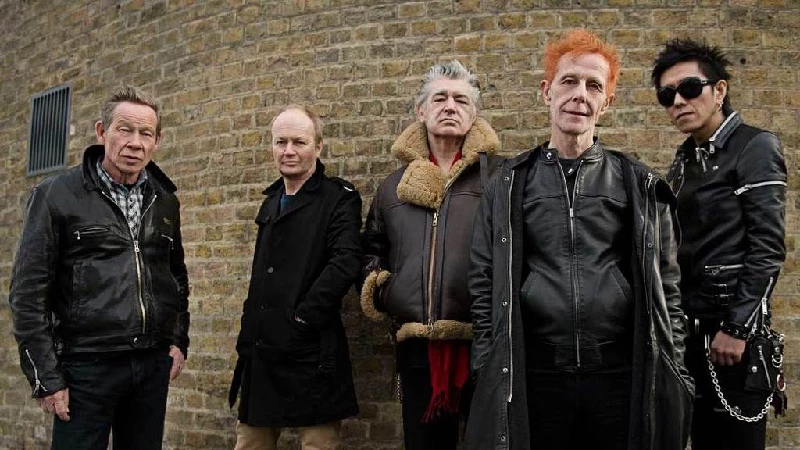
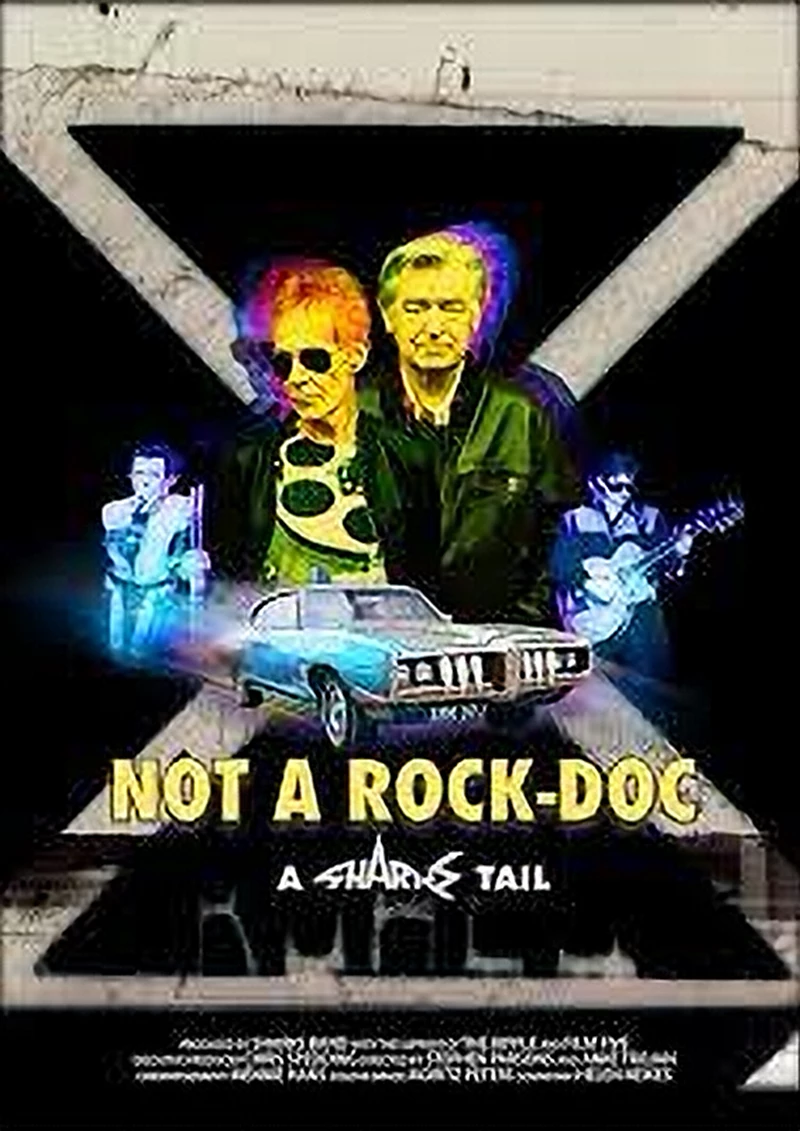
interviews |
|
Interview (2016) |
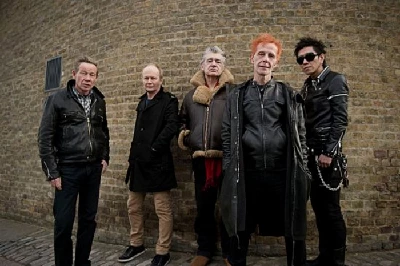
|
| John Clarkson speaks to Steve Parsons abour the return of his band Sharks with a new album, 'Killers of the Deep' and first UK tour in forty-two years, and their plans to recreate their car, the Sharkmobile, with the aid of a Crowdfunding campaign |
profiles |
|
Profile (2025) |
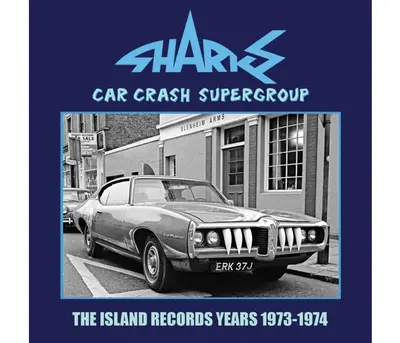
|
| With a new box set ‘Car Crash Supergroup – The Island Years 1973-1974’ being released on Cherry Red, Eoghan Lyng looks back at the early career of seminal cult act Sharks |
reviews |
|
Ready Set Go (2018) |
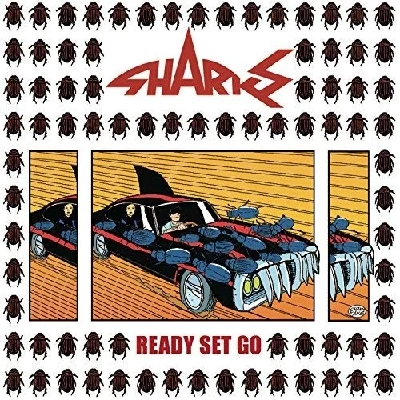
|
| Versatile second album in two years from reformed, still underrated pre-punk supergroup Sharks |
| Killers of the Deep (2017) |
most viewed articles
current edition
Carl Ewens - David Bowie 1964 to 1982 On Track: Every Album, Every SongBathers - Photoscapes 1
Colin Blunstone - Thalia Hall, Chicago, 16/7/2025
Visor Fest - Valencia, Spain, 26/9/2025...27/9/2025
Billie Eilish - O2 Arena, London, 10/7/2025
Bathers - Photoscapes 2
Sir Tim Rice - Interview
John McKay - Interview
Editorial - July 2025
Armory Show - Interview with Richard Jobson
previous editions
Heavenly - P.U.N.K. Girl EPTrudie Myerscough-Harris - Interview
Pixies - Ten Songs That Made Me Love...
Beautiful South - Ten Songs That Made Me Love...
Simon Heavisides - Destiny Stopped Screaming: The Life and Times of Adrian Borland
Oasis - Oasis, Earl's Court, London, 1995
Boomtown Rats - Ten Songs That Made Me Love....
Blues and Gospel Train - Manchester, 7th May 1964
Prolapse - Interview
Paul Nelson - Interview
most viewed reviews
current edition
Amy Macdonald - Is This What You've Been Waiting For?Sick Man of Europe - The Sick Man of Europe
Alice Cooper - The Revenge of Alice Cooper
Phew, Erika Kobayashi,, Dieter Moebius - Radium Girls
Lucy Spraggan - Other Sides of the Moon
Blueboy - 2
Cynthia Erivo - I Forgive You
Davey Woodward - Mumbo in the Jumbo
Lapsley - I'm a Hurricane, I'm a Woman In Love
Philip Jeays - Victoria
Pennyblackmusic Regular Contributors
Adrian Janes
Amanda J. Window
Andrew Twambley
Anthony Dhanendran
Benjamin Howarth
Cila Warncke
Daniel Cressey
Darren Aston
Dastardly
Dave Goodwin
Denzil Watson
Dominic B. Simpson
Eoghan Lyng
Fiona Hutchings
Harry Sherriff
Helen Tipping
Jamie Rowland
John Clarkson
Julie Cruickshank
Kimberly Bright
Lisa Torem
Maarten Schiethart